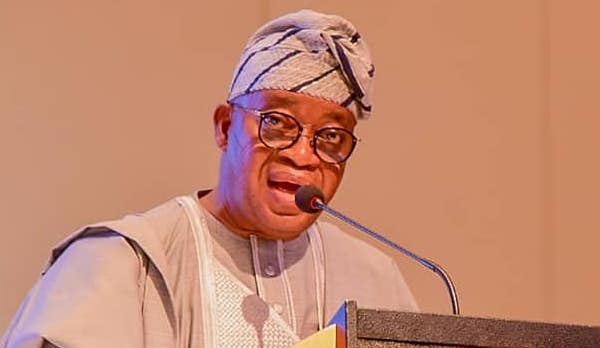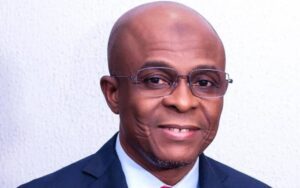
Oyetola highlights maritime policy for growth
By Seun Ibiyemi
The Minister of Marine and Blue Economy, Adegboyega Oyetola, says the National Maritime Policy before the Federal Executive Council will create a sustainable economic growth path for the sector.
Oyetola stated this during a panel discussion at the third Maritime Transportation Breakfast Meeting in Lagos on Wednesday.
The theme of the Breakfast Meeting is, “Prospects for Accelerated Growth and Other Matters Arising”.
Oyetola, represented by the Director of Maritime Services of the ministry, Dr Mercy Ilori highlighted that the policy would accelerate growth in fisheries, aquaculture, renewable energy, tourism, and seabed mining.
Reports that the event was organised by the Nigerian Maritime Law Association (NMLA).
He further noted that the national marine and blue economy policy remained vital for developing Nigeria’s maritime sector and ensuring environmental sustainability.
The Deputy Chief Operating Officer, Lekki Deep Sea Port, Mr Daniel Odibe commended the Federal and the Lagos State Governments for developing coastal roads to improve port accessibility.
He emphasised that the road network is crucial for port efficiency and holds significant growth potential.
“We have infrastructure to scan 100 per cent of cargo, but we currently scan between 40 per cent and 50 per cent of goods. We scan cargoes within 30 seconds of positioning.
“Lekki Deep Sea Port is the hub for local transshipment. In 2024, we began transhipping cargoes to Warri and are considering routes to Calabar and Onitsha to reduce road congestion,” Odibe explained.
With a 19-meter water draft, 16 meters of which are operational, Odibe said the port could accommodate larger vessels.
He also confirmed that the Lekki Deep Sea Port’s capacity had increased to 90 hectares and millions of TEUs, with a faster vessel turnaround time.
A Senior Advocate of Nigeria (SAN), Mr Chidi Ilogu, urged the management of the Lekki Deep Sea Port and LASWA to enhance infrastructure for industrial waterway cargo shipments.
Ilogu, former President of NMLA, suggested establishing barges for all coastal states to ease congestion at Lagos ports and reduce business costs.
Also a Senior Advocate of Nigeria (SAN), Mr Mike Igbokwe praised the Federal Government’s use of Public-Private Partnerships (PPP) in driving maritime infrastructure and efficiency.
Igbokwe recommended expanding the use of barges to improve multimodal cargo connectivity and reduce costs across the country.
He also advocated for PPPs to reduce the cost of goods and improve rail transport to landlocked states for better dry port operations.
The Managing Director of LASWA, Mr Oluwadamilola Emmanuel urged improvements in “Search and Rescue operations across Lagos’ 12 jetties.”
Emmanuel, represented by the Director, Operations, LASWA, Mr Famuyiwa Ibrahim, said that a data monitoring centre had been established, which had been significantly reducing water accidents on Lagos waterways.
He attributed some accidents to passenger negligence and urged boat operators to enforce safety measures.
Emmanuel explained that LASWA removes water hyacinth every six months to keep the waterways navigable.
He also stated that community women in riverine areas use dried hyacinth to create domestic gift items, with LAWMA occasionally helping in removal.
Emmanuel added that of the 20 local governments recognised by the Federal Government, 15 were accessible by water transport.
Mrs Funke Agbor, president of NMLA, reaffirmed the commitment of the association to supporting legal, institutional, and policy frameworks for a thriving maritime industry.
Agbor highlighted the support of NMLA through advocacy, capacity building, and stakeholder engagement for the sector’s sustainable development.
According to her, maritime transportation is central to global trade and economic integration, with Nigeria’s strategic location and coastline offering untapped growth potential.
To realise this potential, Agbor called for effective policy frameworks, regulatory oversight, private sector involvement, and continued stakeholder engagement.
The NMLA president explained that the breakfast series aimed to facilitate meaningful dialogue and collaboration among stakeholders in the maritime and blue economy sectors.




